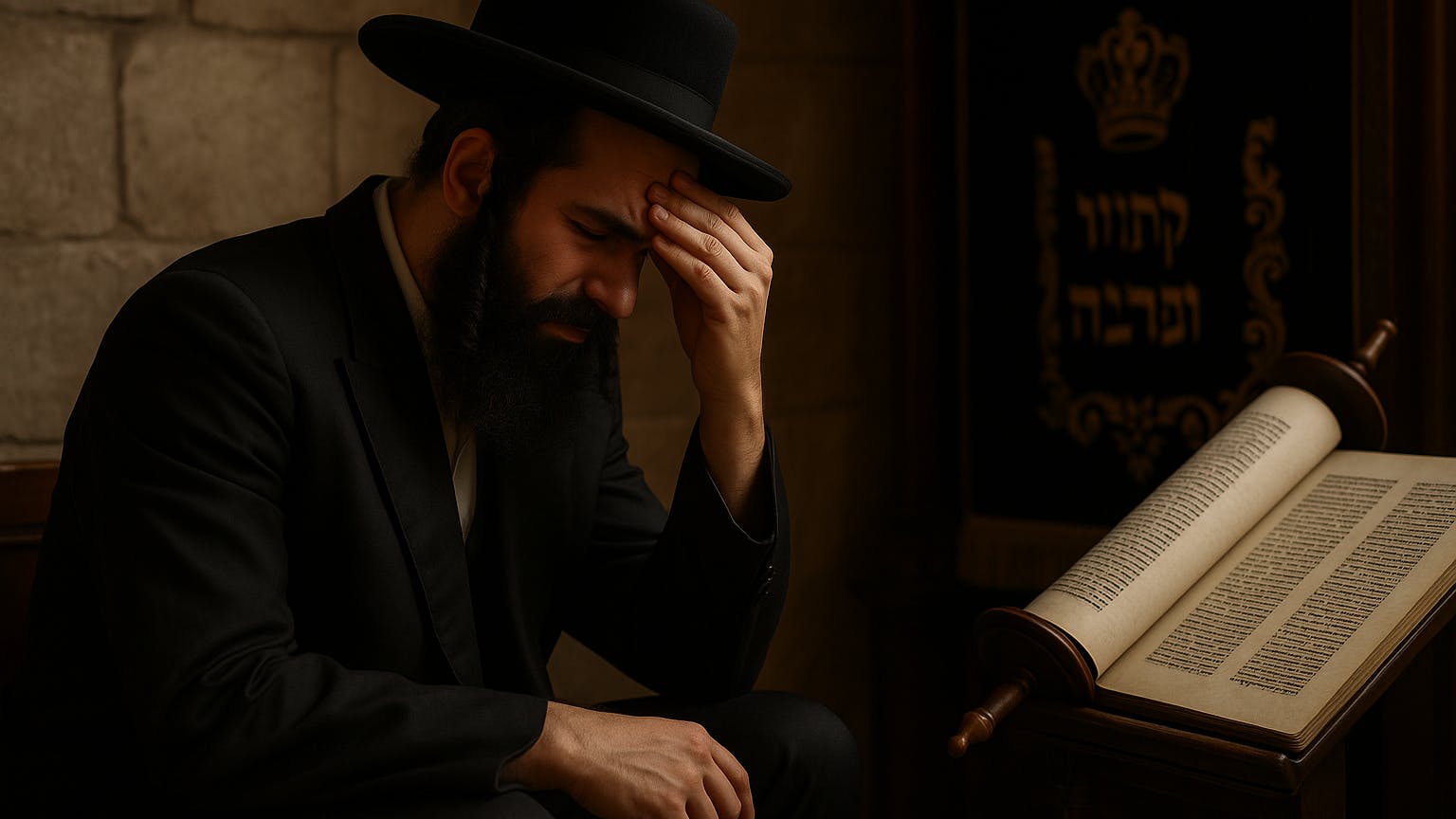Jewish thought after the haskalah, or Enlightenment, has tended towards rationalism. Jews have thrived politically in secular societies, as they seek to carve out alternative political approaches other than Christianity. One only has to read the writings of Franz Kafka to sense the literary alienation of the enlightened European Jew, or indeed the cultural critiques of Theodor Adorno to feel the palpable otherness of the Jewish intellectual. Indeed, Jews have prospered in the post-Enlightenment world of ideas: from communist Karl Marx to scientific theorist Albert Einstein to modern philosopher Yuval Noah Harari. Atheist Sam Harris – Jewish by birth – has enjoyed a great deal of success. So how is it that the Jewish intellectual in the West has formed his views, despite his casting off of his own religion?
For an answer, one might look back to the philosophy of Baruch Spinoza, who found ways for the Jew to explain theological miracles in a rationalistic manner. Spinoza argued that the miracles of the Pentateuch such as Joshua’s long day, and the Israelites crossing the Red Sea, were not miracles in the sense of God displaying his mighty power over and above nature, but rather, God worked within the confines of the laws of nature to create illusory events that appeared to men as miracles.
Spinoza has proven to be a ticket for many out of the confines of haredi and Hasidic Judaism, into what’s considered a more secular or sophisticated expression of one’s Jewishness. Indeed, many Israeli Jews feel no connection at all to the beliefs represented by their ancestors – instead clinging to the national Israeli and Jewish identities. In this sense, Yosef Yerushalmi accurately described Spinoza as "the first great culture-hero of modern secular Jews."
In a sense, Spinoza also captured the modern Jewish admiration of Jesus that stops short of acknowledging his Messiahship. Spinoza’s Christ was resurrected in a spiritual manner, and in this, Spinoza may serve as a forerunner for the liberal thought of critics like Karl Barth – in a letter claiming that Christ’s resurrection may serve as a metaphor for Christ’s “giving by His life and death a matchless example of holiness.”
Thus modern Jews oscillate between the Talmudic or Kabbalistic religion that plainly hates Jesus Christ while acknowledging his miraculous power, ascribes it to magic; and secular post-Haskalah Jewish thought that admires Jesus yet denies both his messiahship and his miracles. To add another layer of complexity, secular Jews are deeply sympathetic towards their religious haredi brethren, and justify their hostility to Christ on the grounds of clashes between Christians and Jews in centuries past.
Truthfully, many secular Jews use their naturalistic explanations of the world to cast God aside in their minds. Without God, they think less upon the Ten Commandments, and thus lose the moral force of their conscience holding them to account. And so it is that many Israelis pursue godless hedonism, expressing itself in fornication, sodomy, drug abuse and the like – Tel Aviv for example being seen as the homosexual capital of the Middle East.
In considering these issues, it is important not to be solipsistic in our pursuit of truth. That is, not to cling to a certain position because we like how it affects us, or we like the people around us. To truly seek the truth means stepping outside ourselves and considering the evidence, without being afraid of where it leads you.
Indeed, we are woefully sinful, and the sin that causes men to lust, to hate, to lie, to steal, and to blaspheme the doctrine, worship, and name of God, and desecrate his sabbaths and despise authority, and covet in our hearts, has an effect on our ability to think and reason clearly. Only the light of Scripture shines where the darkness of our minds only brings futility and despair - and with the Scriptures, the illumination from God the Holy Spirit.
The blindness of both secular and religious Jews is no accident of circumstance, however; rather, it is a fulfillment of ancient prophecy. Moses prophesied in the Torah that the Jewish people would arrive at such a miserable condition, claiming:
Deuteronomy 28:29
“and thou shalt grope at noonday, as the blind gropeth in darkness, and thou shalt not prosper in thy ways: and thou shalt be only oppressed and spoiled evermore, and no man shall save thee”
To escape such, we must realize that the Scriptures not only provide four harmonious accounts of the resurrection of Jesus Christ, but also show us that the disciples all saw Jesus after death, and went from fearing, to being bold enough to die as martyrs for Christ. They would not have all done so if they had been faking it; and a mass hallucination is impossible.
For contrast, consider the Jewish messianic movements of Bar Kochba, Shabbatai Zevi, and Menachem Mendel Schneerson. Bar Kochba was defeated militarily and renamed “Bar Kozeba” (the son of disappointment) by Rabbi Akiva. Shabbatai converted to Islam; and Schneerson died from old age, never to be seen again. While followers of Zevi and Schneerson sought to keep each movement alive, significantly, neither set of followers claimed that their messiah had risen from the dead. How can even the secular Jew - who while rejecting Scriptural miracles, claims to be logical – explain the logic of Christ’s disciples going to be martyred, convinced that Jesus had be raised from the dead, unless they themselves were eyewitnesses of his resurrection? That all should mourn is natural, that all should hallucinate is absurd, and that all should go to their death for a known lie and common delusion without any of them breaking rank, as it were, is preposterous. Furthermore, the apostles who were martyred preached repentance, faith in the Triune God, and obedience to the ninth commandment not to bear false witness. It is illogical to suggest that such men who highly valued truth would knowingly die for a known lie. Logic compels us to believe in the resurrection of Christ
Moreover, Christ wonderfully fulfills ancient Jewish prophecies: the Messiah would be born in Bethlehem (Micah 5:2), to the tribe of Judah (Genesis 49:10), rule as a priest as well as a king (Zechariah 6), according to the order of Melchizedek (thus without a prior priestly lineage: Psalm 110:4), die around the year 33 AD, following the decree to rebuild Jerusalem to the death of Messiah within 490 years, or seventy sevens (Daniel 9:24-27), that the Messiah would die on the cross with his hands and feet pierced (Psalm 22:16), that he would die for the sins of his people (Isaiah 52:13-53:12), yet he would not be believed by many (Isaiah 53:1), being rejected by the Jewish leadership (Psalm 118:22), would rise from the dead (Psalm 16:10), and would thus be a light not only to Israel, but also to the Gentiles (Isaiah 49:6).
Thus history and prophecy force even the secular, sophisticated Jew to the inescapable conclusion that Jesus is Christ – and hence he hates all the fleshly excesses in which the modern secularist delights, namely: sexual perversions, indulging and pampering the flesh, lewd entertainment, the spirit of rebellion, and so on.
The logical conclusion however is enough to shake the secular Jew out of his slumbering atheism, because it blows to smithereens his secular assumptions. It is this knowledge that is resisted by those who prefer a life of sin and pleasure to a life of godliness. Yet we should remember Moses instead:
Hebrews 11:24-26
“Moses, when he was come to years, refused to be called the son of Pharaoh’s daughter; choosing rather to suffer affliction with the people of God, than to enjoy the pleasures of sin for a season; esteeming the reproach of Christ greater riches than the treasures in Egypt: for he had respect unto the recompence of the reward”
Moses being a great leader in Israel, and Jesus Christ being greater than he (Deuteronomy 18:15-18). Thus it is not the strength of logic that keeps a secular Jew shackled to his godless worldview, but rather a love of sin – a love of the spiritual Egypt that he refuses to leave, because while his ancestors left Egypt in the Exodus, he has returned there in his heart, loving rebellion more than righteousness.
Generally speaking, good traditions should be continued from generation to generation – but there is no sense in continuing a bad one. The true and complete Jewish identity is found when Jews cast aside the bankrupt philosophies of not only the Talmud and Kabbalah, but also the Haskalah, and embrace their true Messiah, Jesus Christ of Nazareth.
More Topics
You might alsoo be interested in these topics.




